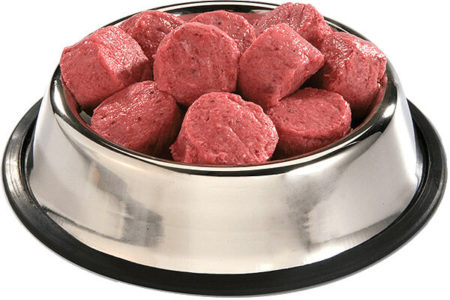Brussels sprouts are a popular vegetable known for their health benefits in humans, but can dogs eat Brussels sprouts safely? The short answer is yes, but with certain precautions.
Brussels sprouts are full of important vitamins, minerals, and fiber. They are a healthy choice for your dog’s diet. However, overfeeding can lead to digestive issues, including gas and bloating. In this guide, we’ll explore the benefits, risks, and the best ways to serve Brussels sprouts to dogs.
Table of Contents
Are Brussels Sprouts Safe for Dogs?
Yes, Brussels sprouts are safe for dogs when given in moderation. These vegetables are rich in nutrients that support overall health, but they also contain high fiber, which can cause stomach discomfort if fed in large amounts.
To ensure your dog benefits from Brussels sprouts without negative side effects, it’s important to serve them properly and control portion sizes.
Health Benefits of Brussels Sprouts for Dogs
Brussels sprouts offer several health benefits for dogs due to their nutrient-rich composition. Here’s why they can be a healthy treat for your furry friend:
1. Rich in Vitamins and Minerals
Brussels sprouts contain essential nutrients, including:
- Vitamin C – Strengthens the immune system.
- Vitamin K – Supports blood clotting and bone health.
- Vitamin A – Promotes good vision and healthy skin.
- Potassium – Helps maintain proper muscle and nerve function.
2. High in Antioxidants
Brussels sprouts are loaded with antioxidants, which help fight inflammation and free radicals in your dog’s body. This can help reduce the risk of chronic diseases and improve overall health.
3. Supports Digestive Health
Thanks to their high fiber content, Brussels sprouts aid digestion by promoting regular bowel movements. However, too much fiber can lead to gas, bloating, or diarrhea, so moderation is key.
4. Low in Calories and Fat
If your dog needs to maintain a healthy weight, Brussels sprouts are a low-calorie treat option. They provide nutrition without contributing to weight gain.
Potential Risks of Feeding Brussels Sprouts to Dogs
While Brussels sprouts offer many benefits, they also come with a few risks if not fed properly.
1. Excessive Gas and Bloating
Brussels sprouts contain isothiocyanates, which help move food through the digestive tract but can cause excessive gas in dogs. Too many Brussels sprouts can lead to:
- Bloating
- Flatulence
- Stomach discomfort
To avoid this, start with small portions and monitor your dog’s reaction.
2. Digestive Upset
Overfeeding Brussels sprouts may lead to diarrhea, vomiting, or stomach cramps. Introduce them slowly into your dog’s diet to prevent these issues.
3. Choking Hazard
Whole Brussels sprouts can be a choking hazard, especially for small dogs. Always cut them into smaller pieces and cook them to soften their texture.
How to Serve Brussels Sprouts to Dogs Safely
To ensure your dog enjoys Brussels sprouts without negative side effects, follow these simple guidelines:
✅ Cooked, Not Raw
Raw Brussels sprouts are harder to digest and may cause more gas. Cooking them makes them softer and easier on your dog’s stomach.
✅ Steamed or Boiled
Steaming or boiling Brussels sprouts is the best cooking method for dogs. Avoid adding butter, oil, salt, or spices, as these can be harmful.
✅ Small Portions
Start with a small piece to see how your dog reacts. If they tolerate it well, you can gradually increase the portion size.
✅ Chop into Bite-Sized Pieces
Cut Brussels sprouts into smaller pieces to prevent choking hazards, especially for small breeds.
How Many Brussels Sprouts Can Dogs Eat?
The recommended amount of Brussels sprouts depends on your dog’s size and weight:
- Small dogs (under 20 lbs): ½ to 1 small Brussels sprout.
- Medium dogs (20–50 lbs): 1 to 2 Brussels sprouts.
- Large dogs (over 50 lbs): 2 to 3 Brussels sprouts.
Too many can lead to digestive discomfort, so always feed in moderation.
FAQs About Can Dogs Eat Brussels Sprouts
1. Can dogs eat raw Brussels sprouts?
It’s best to avoid raw Brussels sprouts as they are harder to digest and can cause more gas and bloating. Cooking them makes them safer and easier on your dog’s stomach.
2. Are Brussels sprouts toxic to dogs?
No, Brussels sprouts are not toxic to dogs. However, feeding them in large amounts can cause stomach upset. Always serve them in moderation.
3. Can puppies eat Brussels sprouts?
Yes, but only in very small amounts. Puppies have sensitive stomachs, so introducing new foods should be done slowly and under supervision.
4. Can dogs eat Brussels sprouts every day?
No, it’s best to feed Brussels sprouts occasionally rather than daily. You should treat them as an occasional supplement, not a regular meal.
5. What happens if my dog eats too many Brussels sprouts?
Too many Brussels sprouts can cause gas, bloating, or diarrhea. If your dog experiences discomfort, stop feeding them Brussels sprouts and offer plenty of fresh water.
6. What vegetables are safe for dogs?
Besides Brussels sprouts, other safe vegetables for dogs include:
- Carrots
- Green beans
- Pumpkin
- Sweet potatoes
Always introduce new foods gradually to prevent digestive issues.
Final Verdict: Should Dogs Eat Brussels Sprouts?
So, can dogs eat Brussels sprouts? Yes, but in moderation.
Brussels sprouts are a healthy food full of vitamins, minerals, and antioxidants. However, you should add them to your diet slowly. This helps prevent digestive problems like gas and bloating.
To keep your dog healthy, always serve Brussels sprouts cooked, unseasoned, and in small portions. As with any new food, monitor your dog’s reaction and consult your veterinarian if you have concerns.
By following these guidelines, you can safely add Brussels sprouts to your dog’s diet as an occasional, healthy treat.







